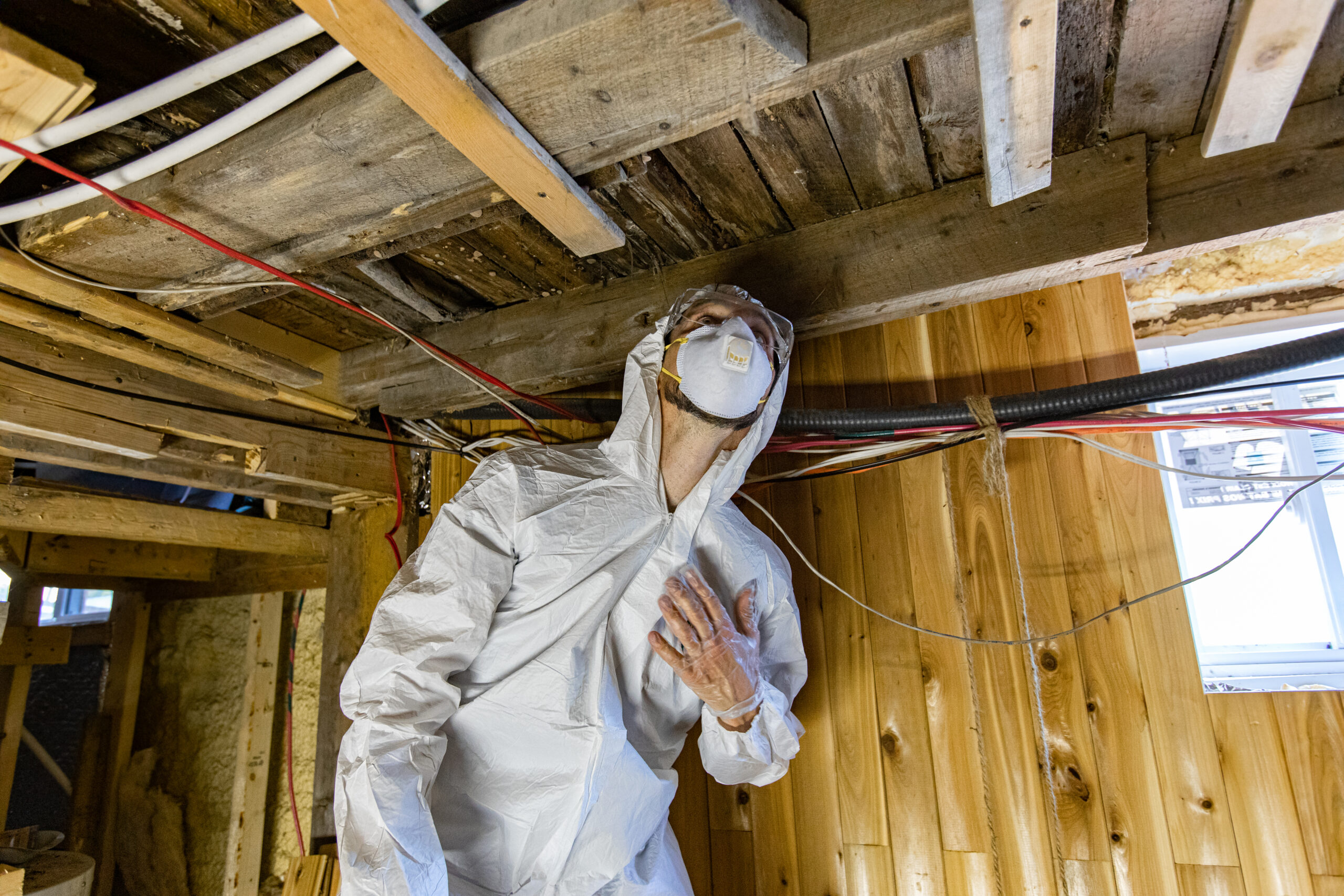
Purchasing a new home is a significant investment, and ensuring that every aspect of the property is in top condition is paramount. One critical aspect that should never be overlooked is the possible presence of mold!
Mold can not only cause extensive damage to the structure of the home but also pose serious health risks to its occupants. We understand the importance of a thorough assessment, and in this blog, we will guide you through the why’s and how’s of getting a mold assessment before you close the deal on your new home!
The Threat of Mold in a New Home
When embarking on the journey of purchasing a new home, ensuring its safety and structural integrity is paramount. Mold, a silent intruder, can lurk in various parts of a home, often unnoticed until it becomes a significant problem. This is where indoor air quality professionals come in!
Mold usually hides in areas with the following characteristics:
- Damp and Humid Conditions: Mold spores thrive in areas with consistent moisture and high humidity, making any space that is regularly damp a potential breeding ground.
- Poor Ventilation: Spaces with inadequate airflow can trap moisture, creating an ideal environment for mold growth.
- Warm Temperatures: Mold tends to grow more rapidly in warm conditions, especially when coupled with humidity and poor ventilation.
- Hidden Spaces: Mold can often go undetected in hidden areas such as behind walls, under floors, or above ceiling tiles where leaks or condensation may occur.
- Organic Material Presence: Areas rich in organic materials like wood, paper, or fabric provide a food source for mold, making them more susceptible to infestation.
Determining who foots the bill for a mold assessment can depend on several factors, including the terms of the sale, local regulations, and negotiations between the buyer and seller. Typically, potential buyers take on the cost of the mold assessment as part of their due diligence in assessing the property’s condition.
However, if signs of mold are evident or if the property has a history of water damage, a buyer might negotiate for the seller to cover the assessment costs. In some cases, sellers might proactively pay for a mold assessment if they are confident in their property’s condition, using it as a selling point to attract buyers!
Rely on Luce Air Quality for Mold Assessments
Note that home inspectors should not conduct your mold assessment! Call certified professionals, like Luce Air Quality, to deliver reliable and accurate results for the sake of you and your family’s safety.
If you’re looking for a team of indoor air quality experts to conduct a mold assessment in your new home or have any questions, contact the Luce Air Quality team today or call 904-803-1014!


